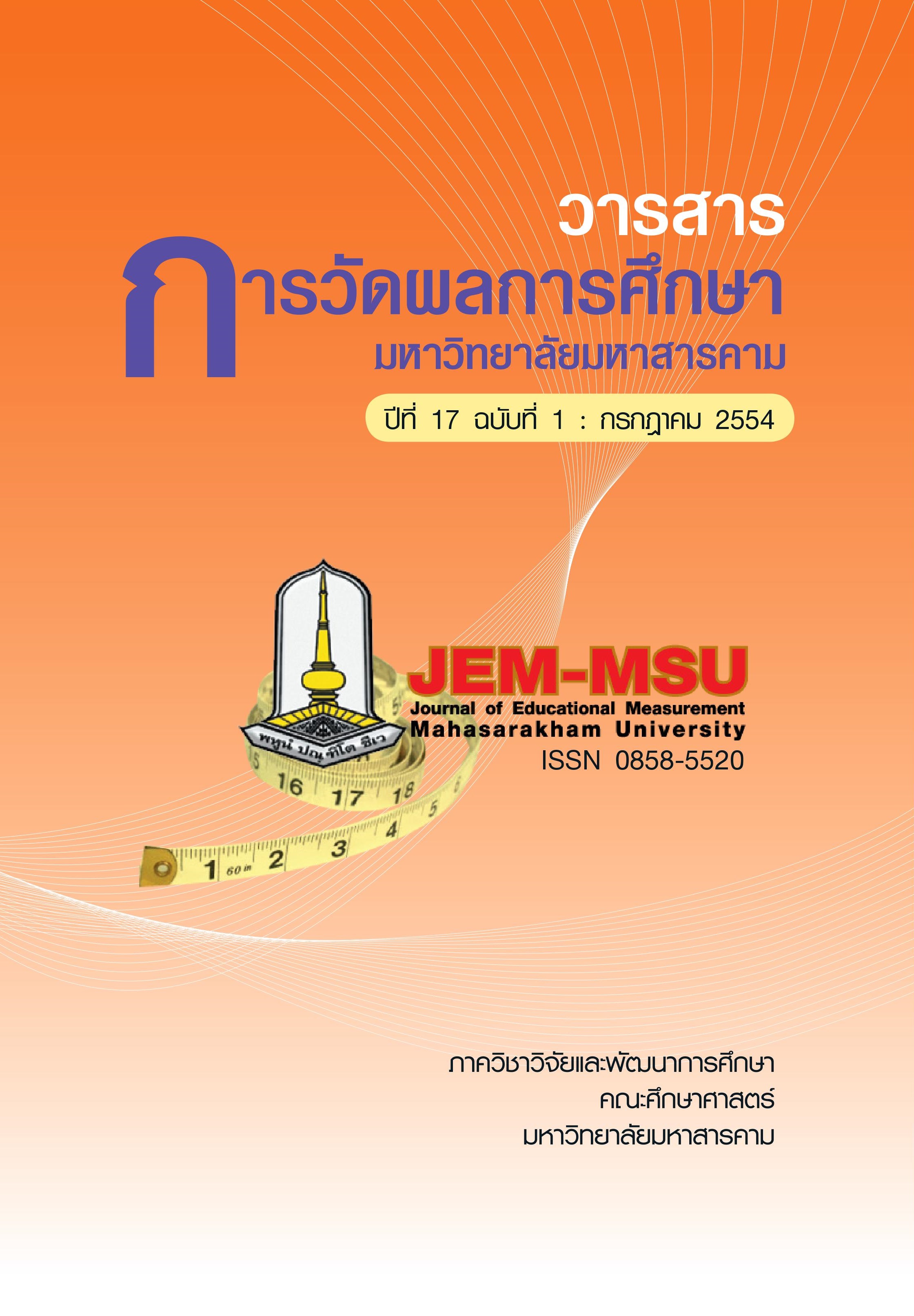The Application of Learning Activities Based on Constructivism and Problem-Based Learning to Science Learning on the World and Its Changes Topic for Matthayomsuksa 2 Students
Main Article Content
Abstract
Developing effective science teaching and learning relies on a variety of techniques
and teaching methods. The application of constructivism and problem-based learning is
an instructional innovation which could enhance effective science teaching and learning to
achieve its goals. The purposes of this research were: 1) to develop learning activities
based on the theories of constructivism and problem-based learning ; 2) to compare
science learning achievement, scientifc problem solving ability and satisfaction toward
science learning of the students who learned by using constructivism and problem-based
learning activities and the traditional learning activities. Samples of this research were 2
classes of Matthayomsuksa 2 students at Baan Phuong, Muang, Nakhon Phanom, obtained
using the cluster random sampling technique. One class was designated as an experimental
group and another was a controlled group. The experimental group was taught by using
constructivism and problem - based learning activities while the controlled group was
taught by using the traditional learning method. Research instruments consisted of four
types. First, 12 lesson plans on the world and its changes topic, based on constructivism
and problem-based learning and 12 lesson plans based on traditional learning activities.
Second, a 40-item learning achievement test with diffculty indices ranged from .25 to .82,
discrimination indices ranged from .20 to .93 and the reliability of .88. Third, a 40-item
scientifc problem solving ability test with diffculty indices ranged from .25 to .87,
discrimination indices ranged from .25 to .91, and the reliability of .81. Finally, a 20-item
satisfaction evaluation form toward science learning with a discrimination indices ranged
from .51 to .79 and the reliability of .94. Statistics used for data analyze were percentage,
mean, S.D., r
xy
and on–way MANOVA.
The research result indicated that the students who learned science through
learning activities based on constructivism and problem-based learning had higher
scientifc problem solving ability and satisfaction toward science learning than those who
studied science through traditional learning activities (p<.008). However, learning
achievement of both groups was not different.
In conclusion, science learning through learning activities based on constructivism
and problem-based learning could enhance students’ scientifc problem solving ability
and satisfaction toward science learning. As a result, science teachers should be supported
in applying constructivism and problem-based learning to teaching science to
Matthayomsuksa 2 students.
Article Details
The content and information contained in the published article in the Journal of Educational Measurement Mahasarakham University represent the opinions and responsibilities of the authors directly. The editorial board of the journal is not necessarily in agreement with or responsible for any of the content.
The articles, data, content, images, etc. that have been published in the Journal of Educational Measurement Mahasarakham University are copyrighted by the journal. If any individual or organization wishes to reproduce or perform any actions involving the entirety or any part of the content, they must obtain written permission from the Journal of Educational Measurement Mahasarakham University.


